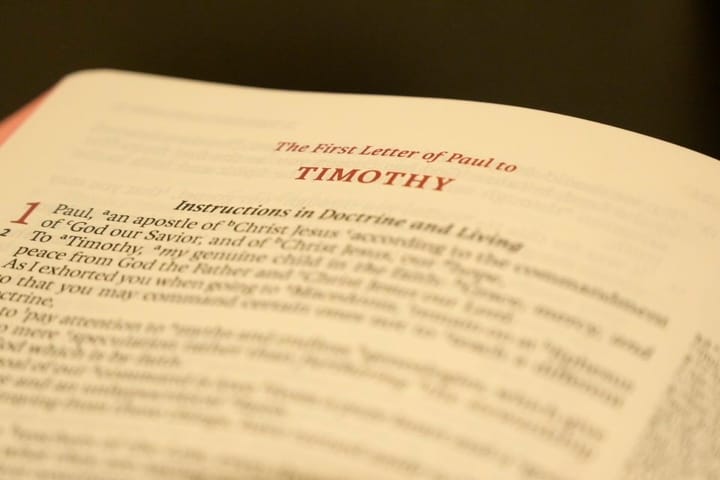Introduction to the Book of Deuteronomy
An overview of Deuteronomy including its setting, its structure highlighting Moses' three speeches, and three important theological themes.

Summary Facts About Deuteronomy
- Deuteronomy is the fifth book of the Pentateuch (Torah).
- Deuteronomy was written by Moses around 1400 BC.
- Deuteronomy summarizes the narrative and repeats the laws God had given to Israel up until this point.
- Book title comes from the Greek translation of Deuteronomy 17:18 which speaks of a king have a "copy of the law." Deuteronomy literally means "second law."
Setting of Deuteronomy
- Setting of book is a new generation (succeeding the exodus generation) of Israelites will be entering the Promised land.
- This generation of people had not seen the parting of the Red Sea or heard the law given through Moses.
- Therefore, they needed to be reminded of God's and the future temptations and dangers that await them in the Promised Land.
Structure of Deuteronomy
Deuteronomy records three farewell speeches given by Moses.
First Speech (Deut 1:6–4:40)
- Moses provides a recap of Israel's history up until this point including their journey from Sinai to Moab.
- Moses urges the Israelites through this history lesson to urge them to trust God and obey him.
Second Speech (Deut 4:44–28:68)
- Moses explains God's law and reivews the instructions on how to live life in the Promised Land.
- Repeats the Ten Commandments (Deut 5:6–21)
- Moses expounds on the first commandment to love God and to properly worship him. (Deut 5–11)
- Moses expounds on the other commandments and the legal laws for Israel. (Deut 12–26)
- Idolatry and the second commandment. (Deut 12–13)
- Rules regarding clean and unclean foods and the issue of holiness. This refers to the third commandment to not misuse God's name which undermines his holiness. (Deut 14)
- Regulations of the Sabbath, feasts, and festivals alluding ot the fourth commandment. (Deut 15–16:17)
- Upholding the honoring of leaders and referencing the fifth commandment (Deut 16:18–18)
- Issues of war and death and the sixth commandment (Deut 19–22:8)
- Sexual immorality, marriage, and divorce and the seventh commandment (Deut 22:9–25)
- Commandments dealing with how to manage one's land and the eighth commandment to not steal.
- Right interactions with others and the ninth commandment (Deut 24–25)
- One's duty to God and others and the tenth commandment (Deut 25–26)
- Moses divides Israel in half (Deut 27–28)
- Half stand on Mount Ebal (represented curses)
- Half stand on Mount Gerizim (represented blessings)
- Moses performs a memorial service as an object lesson.
Third Speech (Deut 29–30)
- Moses warns Israel of the consequences of death for rebelling against God.
Themes of Deuteronomy
A. Land
- God promised a specific land for Israel.
B. God's Love for Israel
- God's election of his people is solely out of his mercy and not based on their merits. (Deut 7:7–8)
C. A Need for Remembrance
- God called Israel to remember what God had done, especially the Exodus. The Exodus and the salvation of Israel needed to be reminded.
- Remembrance was an act of recollection and action.
- We cannot remember God's word unless we know God's word.
- When Jesus was tempted, Jesus quoted three times from Deuteronomy.




Comments ()